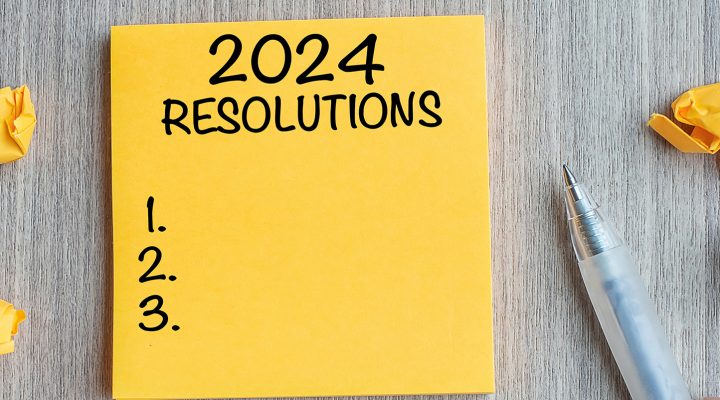I’m not big on New Year’s resolutions. After all, we mostly don’t keep them. Given what we’re facing in 2024, however, it might be a good idea for us to think about how we can avoid a repeat of the miseries of the first Trump campaign and presidency.
You haven’t forgotten that, have you?
I imagine many of us lost friends and family members. We lost sleep. We lost rights. We may even have lost ourselves in the daily cacophony of Trumpian insults, lies and threats to democracy.

Susan Shaw
I really don’t want to go back there.
I can’t control what happens in 2024, but I can do my part. While I can’t control the world around me, I can decide who I want to be and then do my best to be that person, no matter what others do.
In that spirit, I offer these New Year’s resolutions for 2024.
1. No doomscrolling
Research has found compulsively looking for bad news can lead to poor mental and physical health outcomes. We have to limit our consumption of bad news. Sure, read enough to know what’s going on in the world so you can be an informed citizen, but give your brain and body a break from the temptation to take in every awful thing Trump or his followers do or say. And don’t share it. Don’t pass it on. Repeating misinformation, even in opposition to it, increases belief in the misinformation.
2. No dehumanizing others
As much as we may despise everything Trump stands for, we cannot dehumanize our fellow human beings who agree with him. This is one of those hard places, to put into practice the commitment to be the person we want to be, despite what those around us do.
I don’t want to be the kind of person who dehumanizes others — ever. Instead, I want to imagine what might drive people to follow someone like Trump, to make space in my heart for the fears and struggles behind their vitriol — which leads to my third resolution …
3. Resist with compassion and evidence
While I want to make space in my heart for the humanity of those who say and do ugly things, I also do not want to let the ugliness go unchallenged.
“While I want to make space in my heart for the humanity of those who say and do ugly things, I also do not want to let the ugliness go unchallenged.”
The American Psychological Association makes several recommendations based on research for countering misinformation, including:
- Avoid repeating misinformation without including a correction.
- Use misinformation correction strategies with tools already proved to promote healthy behaviors (counseling, skills training, incentives, social norms).
- Leverage trusted sources to counter misinformation and provide accurate information.
- Debunk misinformation often and repeatedly using evidence-based methods.
- Prebunk misinformation to inoculate susceptible audiences by building skills and resilience from an early age.
Research also suggests empathy may be more effective than cold, hard logic in helping people accept corrective information.
So instead of arguing with people — which actually makes them more likely to double down on misinformation — ask questions: Why do you think that? What’s your evidence? Did you know that … ? What do you think about that? How would you feel if that were your son/daughter/wife/husband/mother/father/sister/brother? What do you think would happen if we … ?
And provide good information from reliable sources. You may not win someone over to your side, but you keep the door open.
4. Donate/volunteer/support organizations providing services, education and resistance.
We can’t do this work alone. We need the many organizations that challenge the politics of exclusion and offer psychological and material support to people affected by bigotry, borders and violence.
5. Vote
Even if you have to hold your nose. Every vote counts. Remember how only a few hundred votes made a difference in the 2000 presidential election.
And it’s not just the presidential election that matters. Senators, representatives and other elected officials also play a key role in what happens in D.C. and your state and local community.
So, vote. No candidate is perfect. Sometimes the question is which candidate will do less harm. It’s not ideal, but sometimes it’s the reality, and it matters.
6. Look for joy, hope, compassion, love; it’s still out there
Read books. Learn new things. Meet new people. Visit new places. Go to movies in theaters. Eat lots of fiber — feed your biome. Turn off the phone. Take walks. Listen to music. Dance. Tell people you love them. Pay it forward.
It’s not enough to correct, challenge and resist. We also have to play, celebrate, revel and love. Not surprisingly, research shows positive mental and physical health benefits from celebrating.
In 2024, we need both resistance and joy. I’m hoping these resolutions will help me get there, or in the words of the Indigo Girls (or Barbie as she’s driving away from Barbieland in her pink car) “closer to fine.”
Susan M. Shaw is professor of women, gender and sexuality studies at Oregon State University in Corvallis, Ore. She also is an ordained Baptist minister and holds master’s and doctoral degrees from Southern Baptist Theological Seminary. Her most recent book is Intersectional Theology: An Introductory Guide, co-authored with Grace Ji-Sun Kim.
Related articles:
One thing that must happen in 2024 | Opinion by Mark Wingfield
Denial of Trump’s abusive behavior has ‘devastating implications,’ Russell Moore says
‘How can I talk to my parent who has been consumed by Trumpism and QAnon?’ | Opinion by Mark Wingfield


